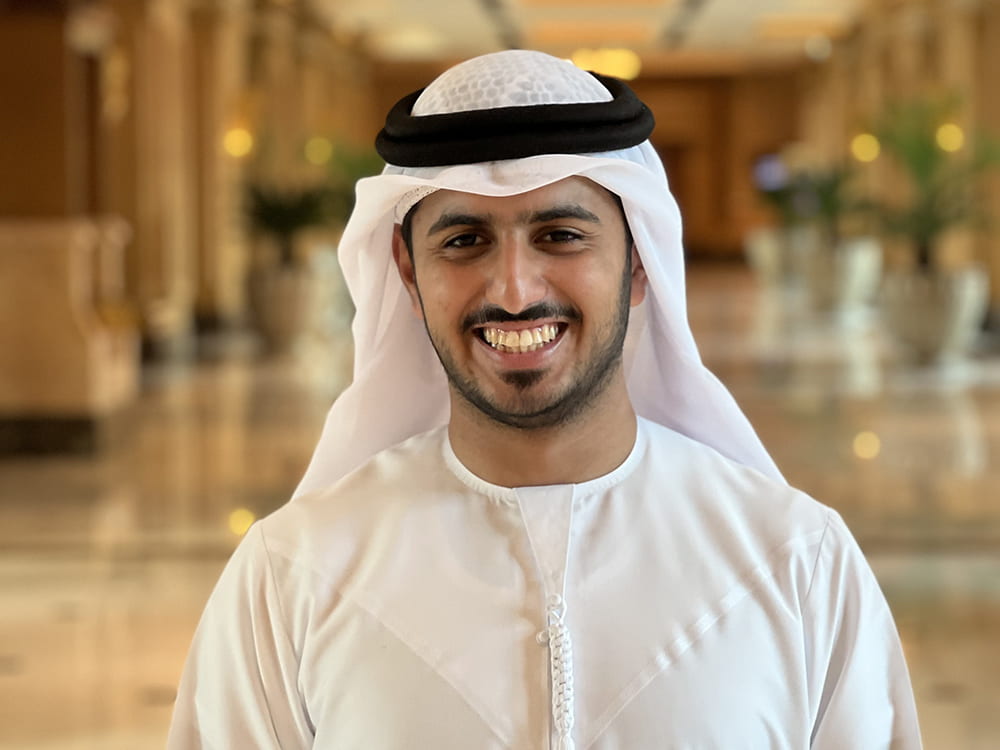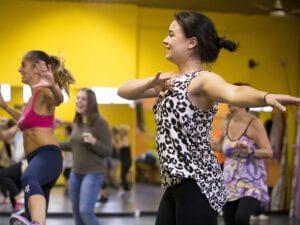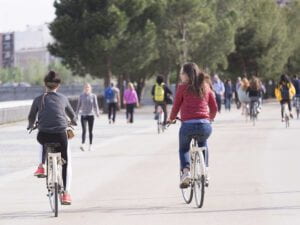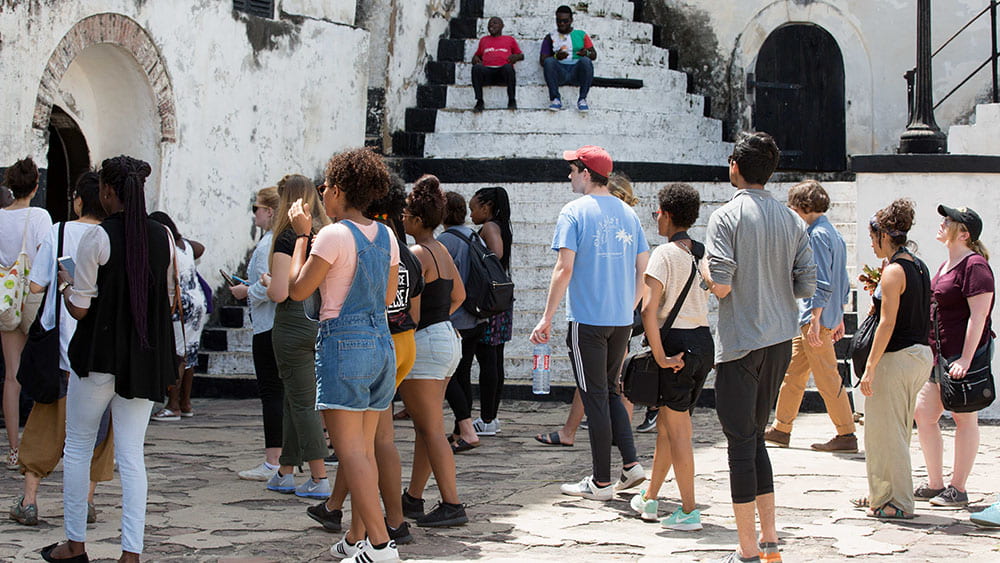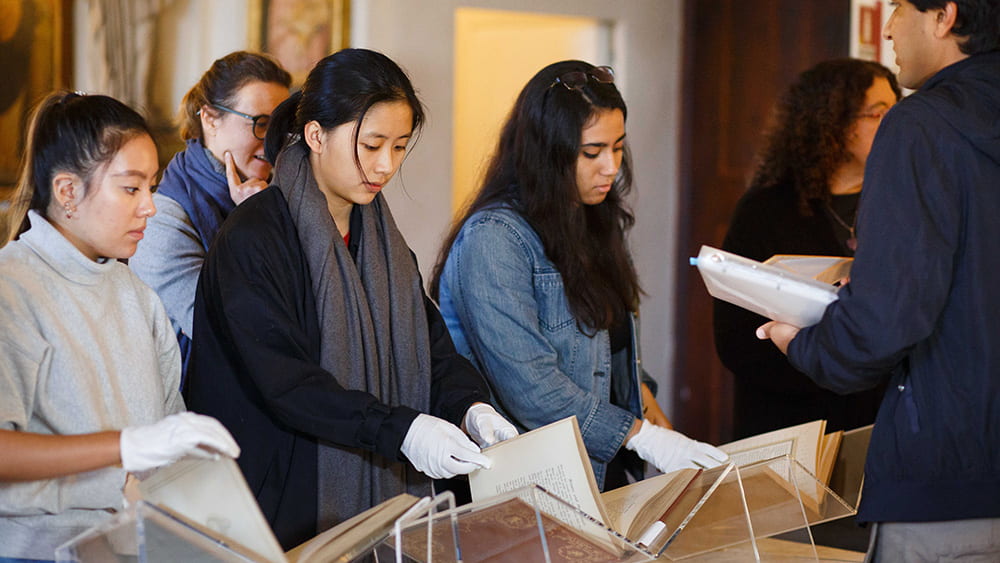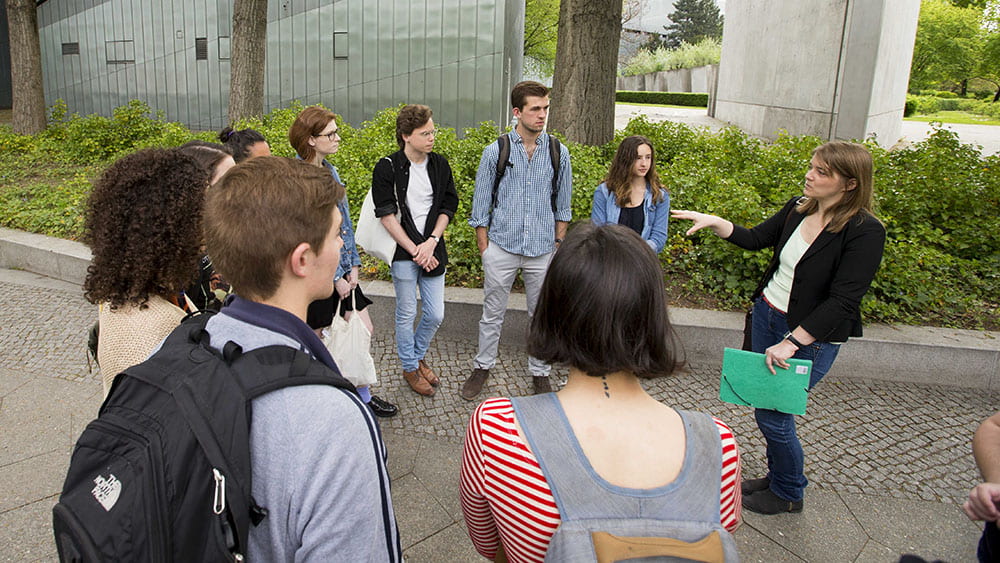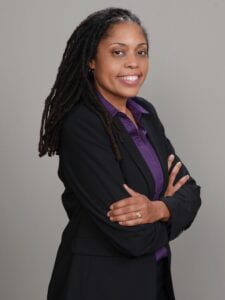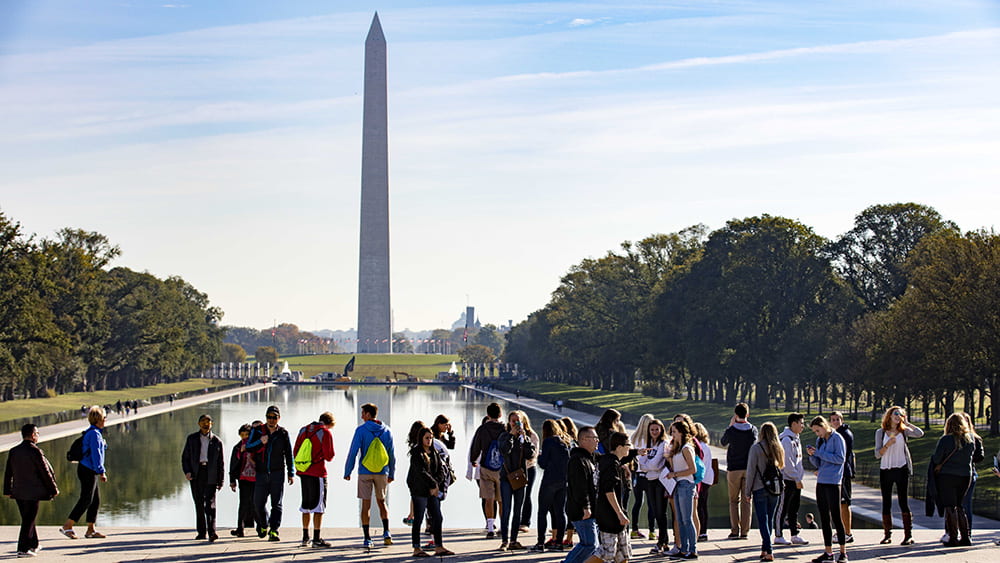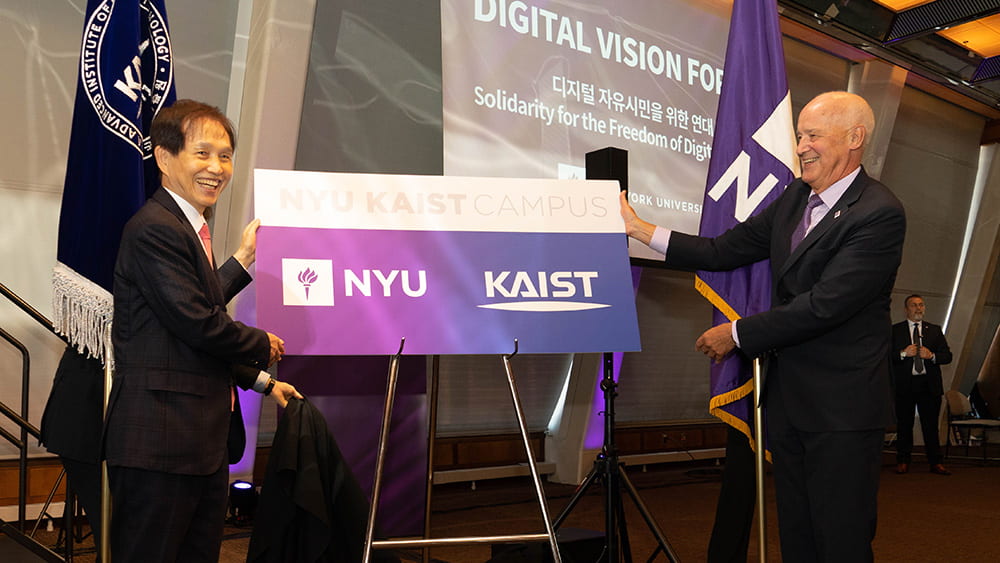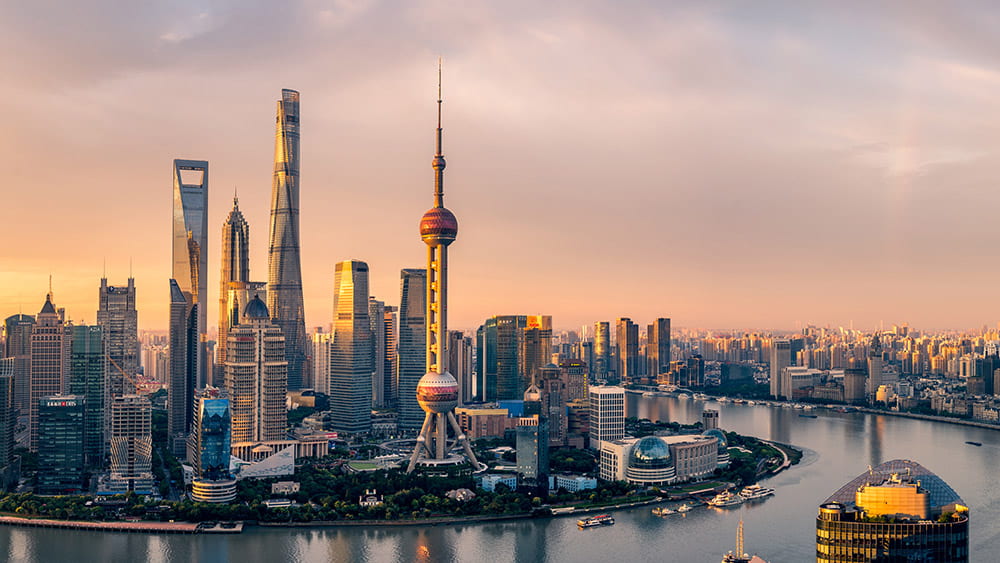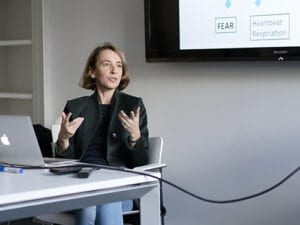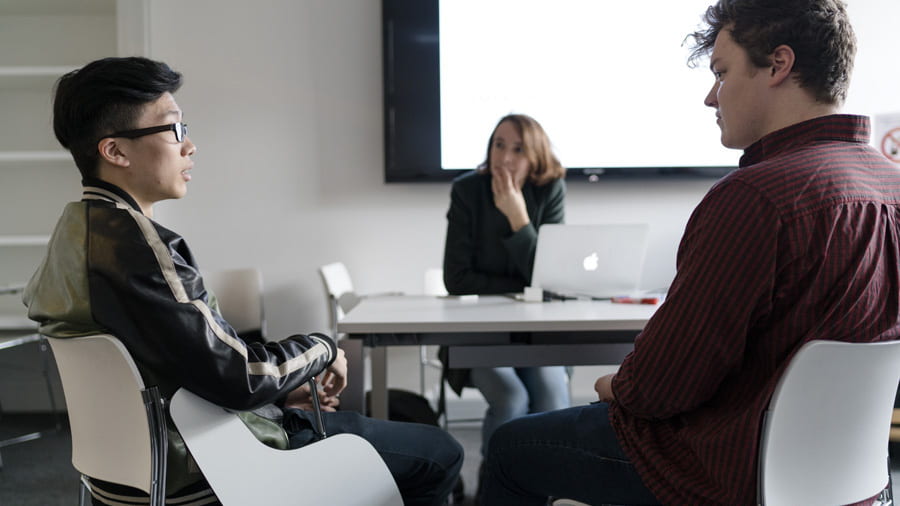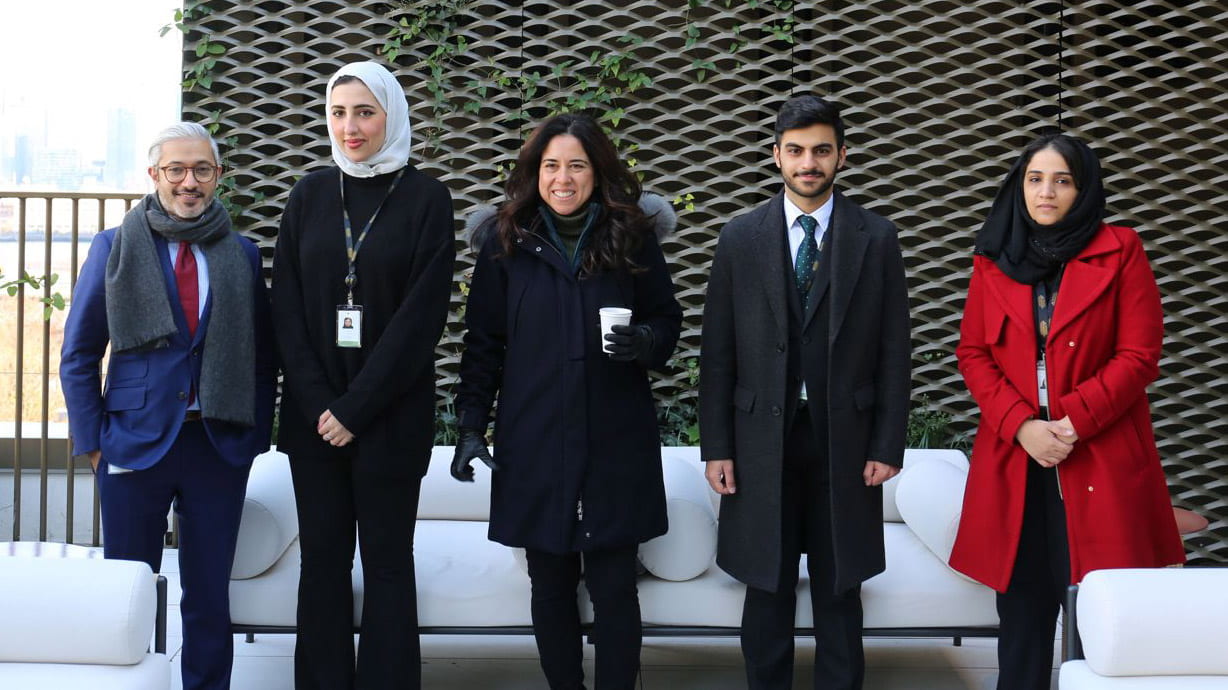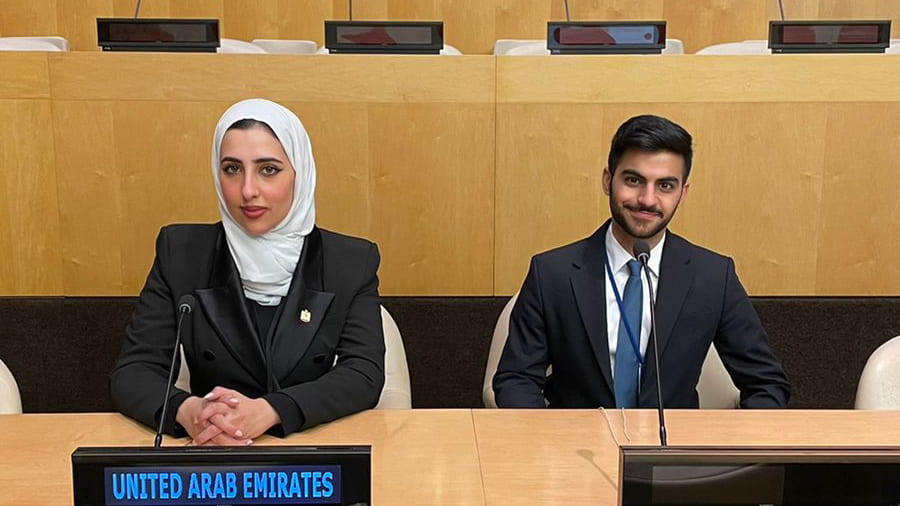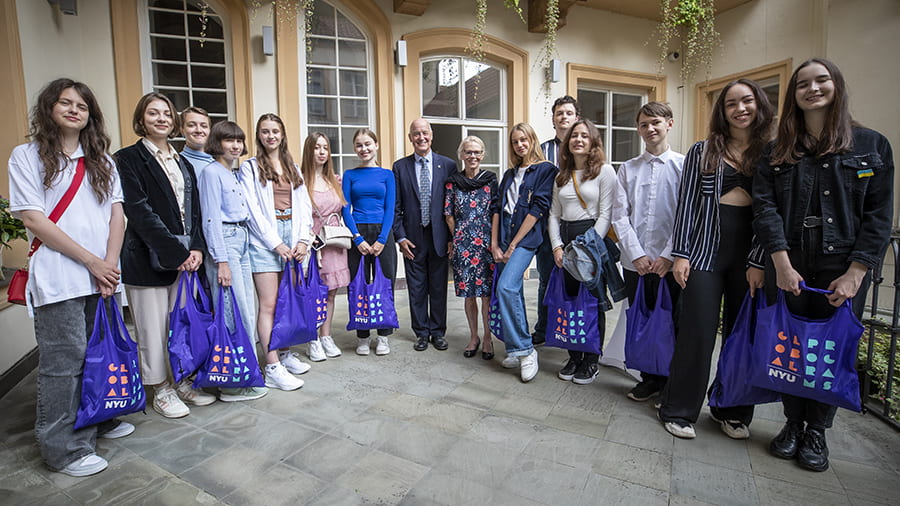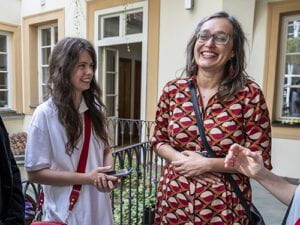NYU has 12 academic centers and programs around the world, each in a region with unique customs, traditions, and beliefs that may be unfamiliar to students studying abroad for the first time. Luckily, each site also hosts Global Equity Fellows (GEFs), specially trained upper-level students tasked with advancing inclusion, diversity, belonging, equity, and accessibility (IDBEA) at study away sites while simultaneously supporting meaningful cultural transition.
The Global Equity Fellowship is a competitive semester-long fellowship created by the NYU Office of Global Programs in partnership with NYU’s Office of Global Inclusion, Diversity, and Strategic Innovation, the NYU Changemaker Center, and the NYU Division of Student Affairs. Before leaving home, GEFs participate in the Global IDBEA Leadership Institute training to master leadership, crisis management, and community-building skills. Once abroad, they step into their new roles, working closely with site staff to develop a research project that focuses on IDBEA and listen to and advise students who are navigating challenges in their host cities.
Meaningful Collaboration
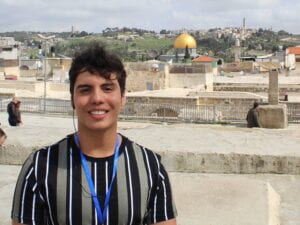
Ruben Mayorga on a trip to Jerusalem during his time at NYU Tel Aviv
NYU Shanghai graduate Ruben Mayorga had already spent a semester at NYU Tel Aviv when he returned there as a GEF in fall 2021. This time he was equipped with new tools shared by NYU global staff. “In training I worked with all the GEFs who were heading to diverse places, and this diversity enriched the conversations by allowing me to see potential problems that might arise at the site and come up with more diverse solutions,” Ruben explains. “It allowed me to take a step back and absorb different perspectives in similar topics. It was a really enriching experience.”
During his fellowship, Ruben worked closely with Eran Rotshenker, NYU Tel Aviv’s manager of student life and housing. Rotshenker guided Ruben as he navigated more sensitive topics like the Israeli–Palestinian conflict and the intersection of LGBTQ+ identity and religion in Israel. “Global Equity Fellows should be passionate about what they want to promote—and should also be tuned in to the community they are serving,” Rotshenker says. “Having stayed in Tel Aviv before that fall, Ruben already knew what was essential to share with the NYU Tel Aviv community. I truly enjoyed seeing how he took the opportunity to share his knowledge and experience with the new group of students and witnessing his transformation into the social leader he is today.”
A Safe Space for Growth
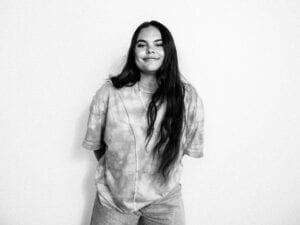
Mi-Kaisha Masella
At NYU Berlin, Tisch School of the Arts senior Mi-kaisha Masella found ways to prioritize listening and create safe spaces for students—and herself—to learn and grow. She developed a close mentor relationship with former staff member Linn Friedrichs, who is now the deputy head of college at Mahindra United World College in India, and she soon felt comfortable sharing ideas and brainstorming solutions for various challenges. Mi-kaisha also spent time meeting with students and talking through their concerns together. “I wanted my peers to be open and honest about their experiences, both positive and negative, at NYU Berlin as well as in the city at large,” she explains. For her research project, Mi-kaisha developed a training module for faculty and staff at NYU Berlin on trauma-informed teaching practices. “I was proud to develop a resource for the NYU Berlin community to use that will support the creation of a safer, more inclusive, and more informed learning community in the future,” she says.
Diving Into Research
For his research project, NYU Buenos Aires GEF and College of Arts and Science senior Ivan Brea turned his attention to the local LGBTQ+ community and dance. “Out of all Argentina’s cultural intricacies, perhaps no dance form is more heavily linked with Argentina’s history than the tango,” Ivan explains. “And in recent years, Argentine tango has undergone a cultural transformation initiated by the LGBTQ+ community.” Now it’s more common to see two men, two women, or people of any gender dancing the tango together in addition to the traditional form featuring a man and a woman. “Queer tango has become a tool for the LGBTQ+ community to maintain their own cultural identity while serving as an expression of their queerness,” he argues in his research project.
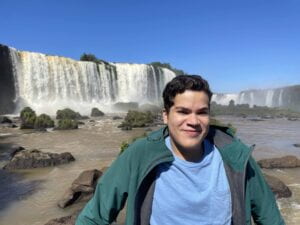
Ivan Brea on a visit to Iguazú Falls during his time at NYU Buenos Aires
During his fellowship, Ivan also organized a number of other initiatives for the NYU Buenos Aires community. Under the guidance of Assistant Director of Student Life Paula Di Marzo and other faculty, he held weekly Breathing Room sessions, where students could discuss IDBEA issues they experienced both in and out of the classroom. He hosted events like Ni Una Menos and the Global Feminist Tide with Professor Cecilia Palmeiro and Queer Cultures in Context with Professor Mariano López Seoane. Ivan also took care to prioritize everyday things that would make Argentina feel more like home, such as finding restaurants that serve traditional food or salons that cut non-Argentine hair. “Because heavy topics such as race, sexuality, and gender can look very different in a new cultural context, I really wanted to make people feel more comfortable,” Ivan says. “The fellowship was an amazing way to be there for my fellow students.”
Wherever they are in the world, GEFs are one of many resources available to help NYU students make the most of their time in an unfamiliar place. “Inclusion, diversity, belonging, equity, and accessibility are big topics and key pillars of our communities as well as our personal lives,” says Mi-kaisha. And as ambassadors of these topics, GEFs are an integral part of helping NYU students feel at home abroad—while challenging them to expand their definitions of community and culture.
Written by Sarah Bender
